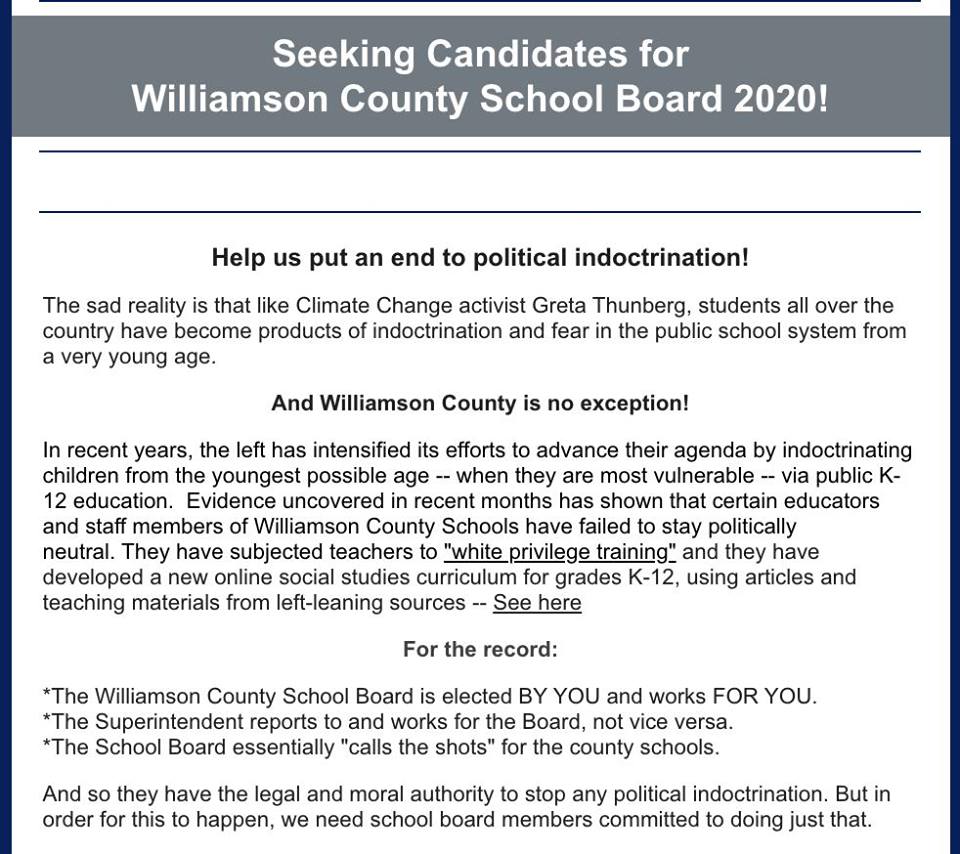While Williamson County has the lowest property tax rate in middle Tennessee and the lowest of any county with a population over 100,000, County Commissioners and the County Mayor are now pushing a sales tax increase scheme that will ultimately rest with local voters.
All of this comes about because the Williamson County Commission continues to exhibit a preference for low taxes and lattes over investment in schools.
Here’s more from the Tennessean on the sales tax effort:
Pushing for an increase in the county’s sales tax to help fund future school projects was a cornerstone of Williamson County Mayor Rogers Anderson’s 15th annual State of the County Address.
The final passage of the proposed 25-cent sales tax increase would be left up to residents in a county-wide referendum, but Anderson has been visiting the county’s six municipalities over the past several weeks in efforts to convince cities to agree to an inter-local agreement that would allocate a portion of new revenue to cover debt service for schools.
“The school system could see an additional $60 million by the arrangements we’re working on for three years,” Anderson said.
All of that sounds great — until you realize this is the most regressive way to raise revenue. Oh, and it has to be approved by voters.
I saw this scenario play out in Sumner County in 2012. County Commissioners faced pressure to raise revenue for a school system growing rapidly. The Commission could not pass a property tax increase. Instead, they put a wheel tax increase on the ballot — twice. It failed both times.
After the wheel tax increase failed twice, County Commissioners ran around saying voters didn’t want a tax increase at all, not even a property tax increase. So, the school budget would have to be cut.
Here’s how this movie ended: Voters turned out in record numbers in 2014 in Sumner County to elect new County Commissioners. The new commissioners promised to explore every option to raise revenue for a county that hadn’t seen a property tax increase in 12 years.
A property tax increase was passed that allowed Sumner County to invest in schools and other needs while still maintaining the second-lowest property tax rate in middle Tennessee. The school system now has a budget that is funded by the revenue generated from a growing county with a low tax rate.
Williamson County is in an even more enviable position than Sumner. Williamson has the lowest tax rate in middle Tennessee — by 35 cents. Each one penny increase in the property tax generates $1 million in revenue. A 10-cent property tax increase would generate $10 million — more than enough to fund this year’s budget request — and would still give Williamson the lowest tax rate in the region by 25 cents.
What Mayor Anderson is pitching now may sound like good news. It’s not a long-term solution, though. Even if it somehow passed, the sales tax increase and inter-local agreement scheme is just kicking the can down the road.
Here’s the alternative (best) option: Raise property taxes a modest amount — maintain your system’s reputation for excellent schools AND enjoy the lowest property tax rate in the Nashville region.
For more on education politics and policy in Tennessee, follow @TNEdReport





